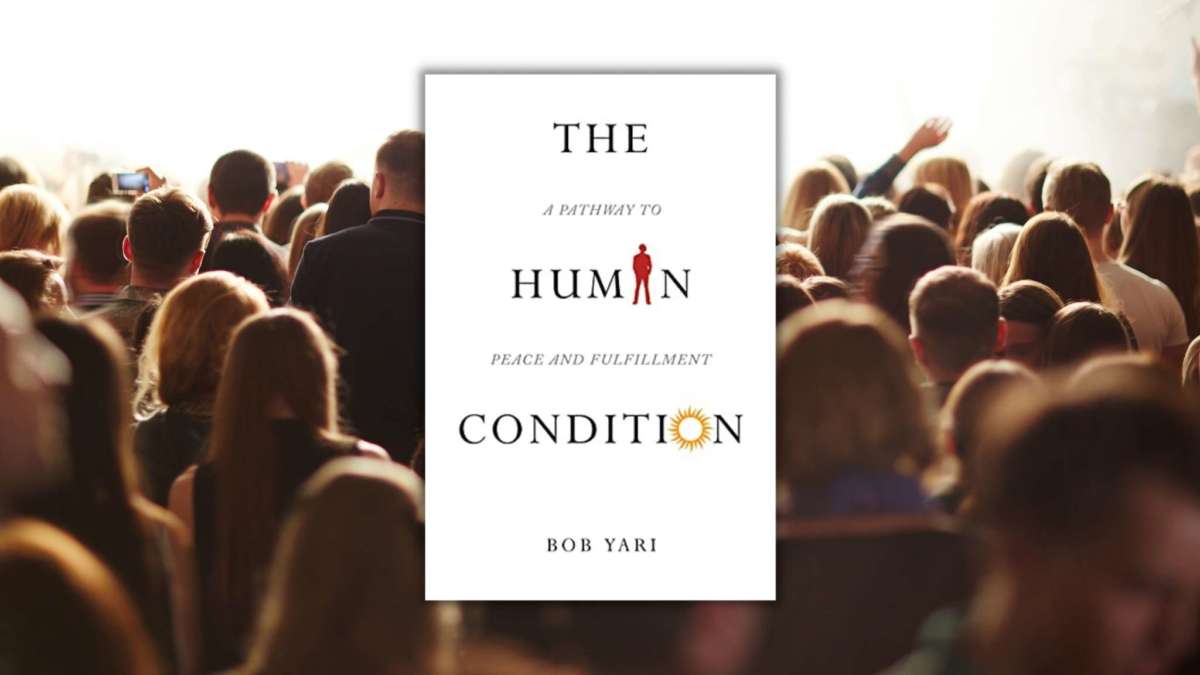The Human Condition
“There is so much we can take control of in our lives by adjusting our views, attitudes and our responses to external stimuli.”
It is our ability to move past our own propensities and “natural programming” that will allow us to better enjoy our lives, says Bob Yari, who offers intelligent observations and a roadmap to enhance our life’s journey in his highly readable and intellectual work The Human Condition: A Pathway to Peace and Fulfillment.
“My life experience has gotten me to develop a defined ‘philosophy’ of living that has enabled me to be a more content and happier person when faced with diversity, loss, and anxiety,” Yari says. After refining this way of thinking over many years and seeing how it made his life more enjoyable, he wanted to share it with as many people as he could.
Yari takes us inside the human condition and the human mind, discussing all the conceptual drivers that influence one’s quality of life: attitude, gratitude, acceptance, balance and logic, to name a few. He presents a discourse on each, discloses how they affect that human condition and points to what readers should consider in order to optimize their connection with them.
The author does not offer his guidance with a heavy hand. In fact, readers are so easily drawn to the dialogue and insights that they are just as likely to come away with a better “understanding” rather than a specific course of action that preaches “do this” or “do that.” This technique positions Yari not so much as a mentor but rather as a colleague simply sharing his thoughts and ideas that have worked for him personally, providing a safe and comfortable connection to his readers.
“To sit back and analyze how our mind handles information and thought and how we can improve our own mental functioning is an act that requires advanced and forced steps,” he writes. “The first is to step outside ourselves and our immersion in our spectrum of life and to look upon life, ourselves, our functioning, and our purpose objectively.”
From chapter to chapter, Yari makes salient observations. For instance:
- “Our need for acceptance is possibly our greatest instinctive need,” and this need guides every aspect and component of our lives.
- “Learn to appreciate and take joy in the small rewards and routines of the day.” Give everything proper balance and weight.
- “Hard faith and religious extremism stem from childhood brainwashing, something the human entity was designed to accept.”
- “If you can learn that you have only the limits of your own beliefs and nothing else, you have conquered your biggest obstacle to achievement and advancement.”
- “We need to believe in something more than what is before our eyes.”
- “Why allow anger, grief, depression and angst to take over our precious time on this planet?”
Ultimately, says Yari, a better understanding of the human condition is the key ingredient to achieving happiness. In The Human Condition, readers will be challenged to come to this better understanding, often having to contemplate a different awareness of and focus on concepts that have been embedded into their DNA and their thinking. It’s not necessarily a quick and easy fix. Anything worth striving for requires inner reflection and hard work. Yari offers a philosophy that could be worthwhile to many; go ahead and take the plunge.
“If we can adjust our attitude and our perception of everything that happens to us in life, we can become much happier people. We need to start acknowledging what a great gift we hold.”




